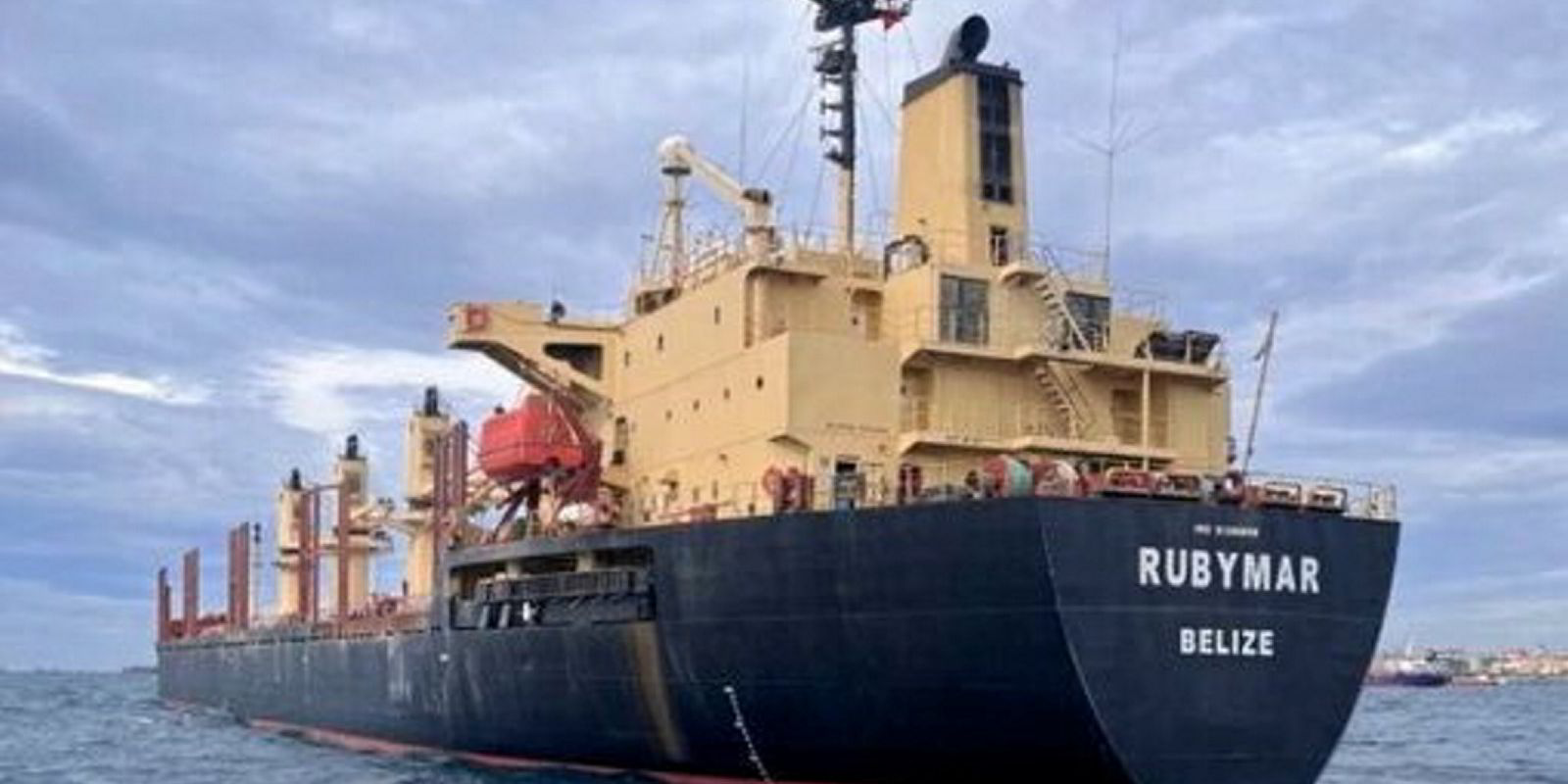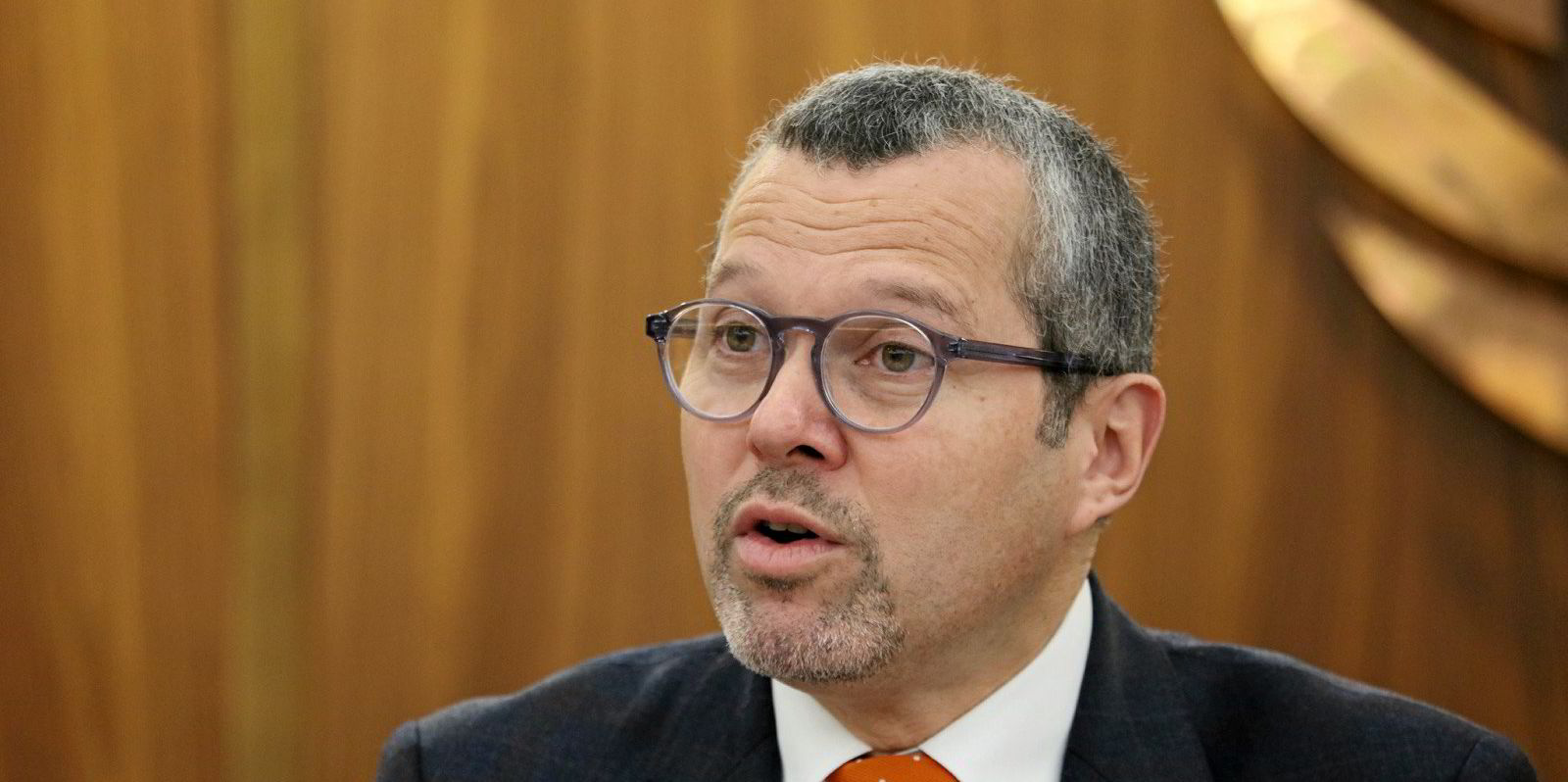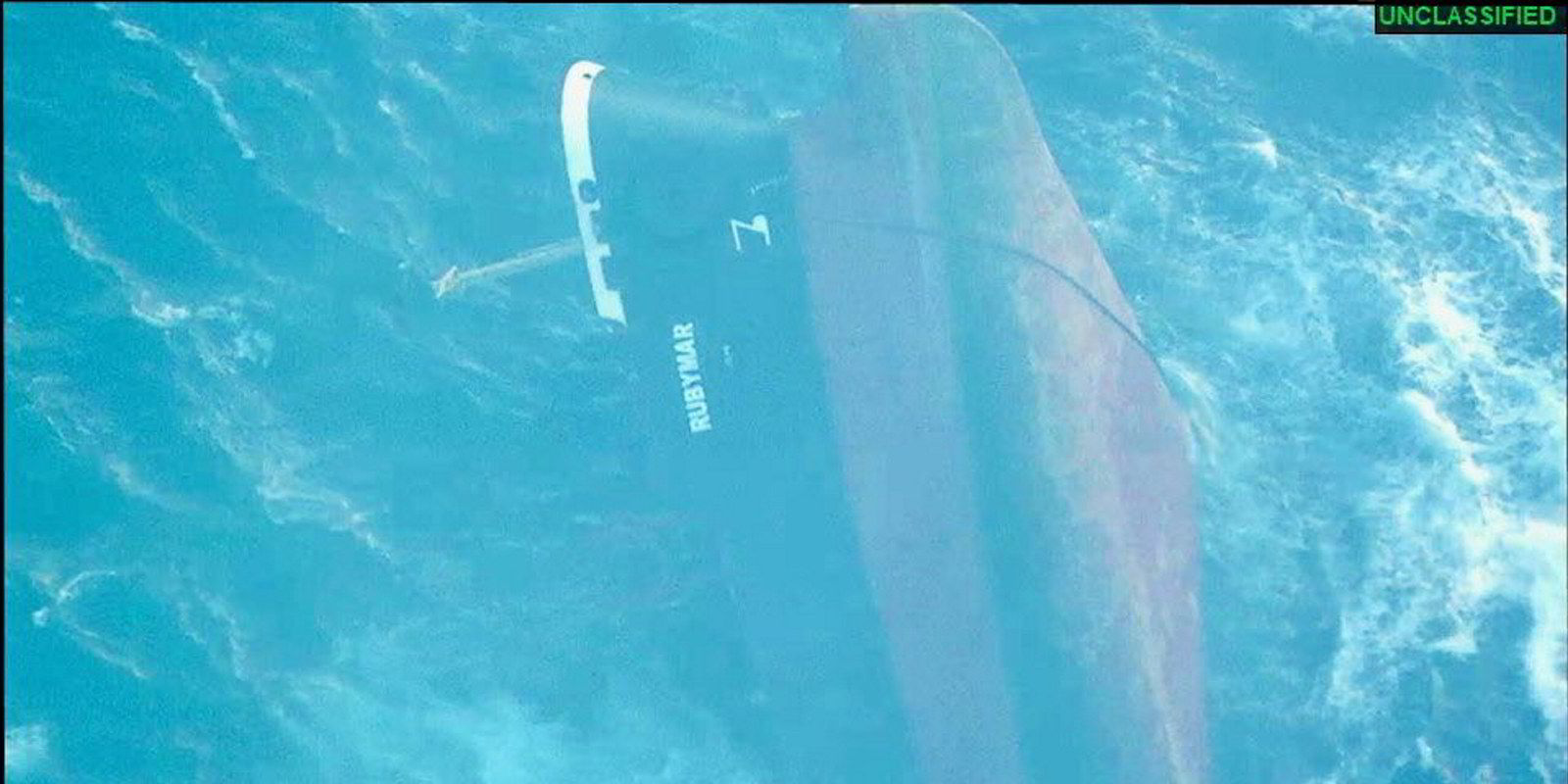The International Maritime Organization has said it is ready to help the government of Yemen deal with the sinking of a bulk carrier following a missile hit in the Red Sea.
The 32,200-dwt Rubymar (built 1997), which was hit by a Houthi missile on 19 February, sank over the weekend.
It was carrying around 20,000 tonnes of ammonium phosphate sulphate fertiliser as well as bunker fuel, which has already caused a 29-km oil slick.
Environmental group Greenpeace MENA has called for immediate action to avert an environmental catastrophe.
“As well as any further leaks of fuel oil from the engines, the sinking of the vessel could further breach the hull, allowing water to contact with the thousands of tonnes of fertiliser, which could then be released into the Red Sea and disrupt the balance of the marine ecosystems, triggering cascading effects throughout the food web,” said environmental group Greenpeace MENA.
IMO secretary general Arsenio Dominguez said the sinking posed an “additional risk for the environment and maritime security”.
He said the IMO had been in contact with the Yemen government and the United Nations to offer support and is working with partners to provide assistance.
The US Central Command said the wreck presents a “subsurface impact risk to other ships”.
Saudi Arabia’s desalination plants and the Yemeni coastline are reported to be under threat from pollution.

But the vessel’s war risk insurance, which would pay for a clean-up operation as the result of a terrorist attack, remains unclear.
The fact that the Rubymar was not entered with a member of the International Group of P&I Clubs could be significant.
The third-party liability for the casualty would be with the war risk insurer but International Group clubs have the critical expertise.
Although not directly involved, they have been advising on Red Sea incidents such as the fire following the missile strike on the 110,000-dwt Marlin Luanda (built 2018).
There is also a $500m excess of loss layer within the International Group’s reinsurance scheme.
Additionally, a big question mark remains over whether any pollution containment operation is safe with continued Houthi attacks on shipping or practical when the ship could sink to a considerable depth.
Salvage companies Smit, Five Oceans and Mubarak Marine have access to salvage hardware and have been active in the Red Sea region but getting involved would represent a considerable commercial and safety risk for them.





